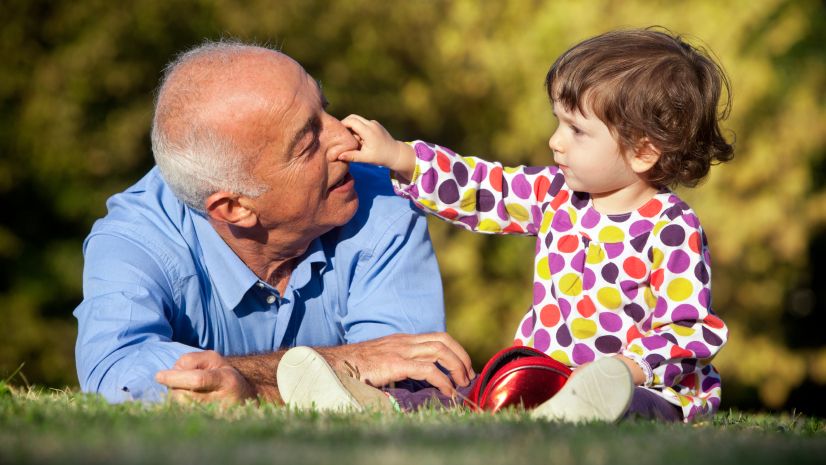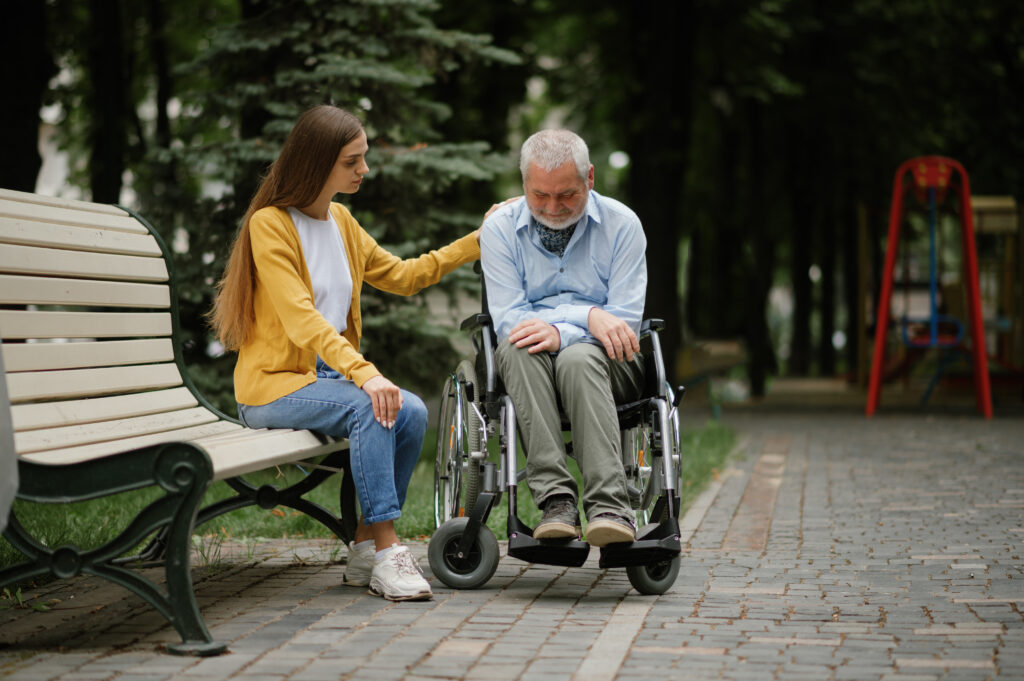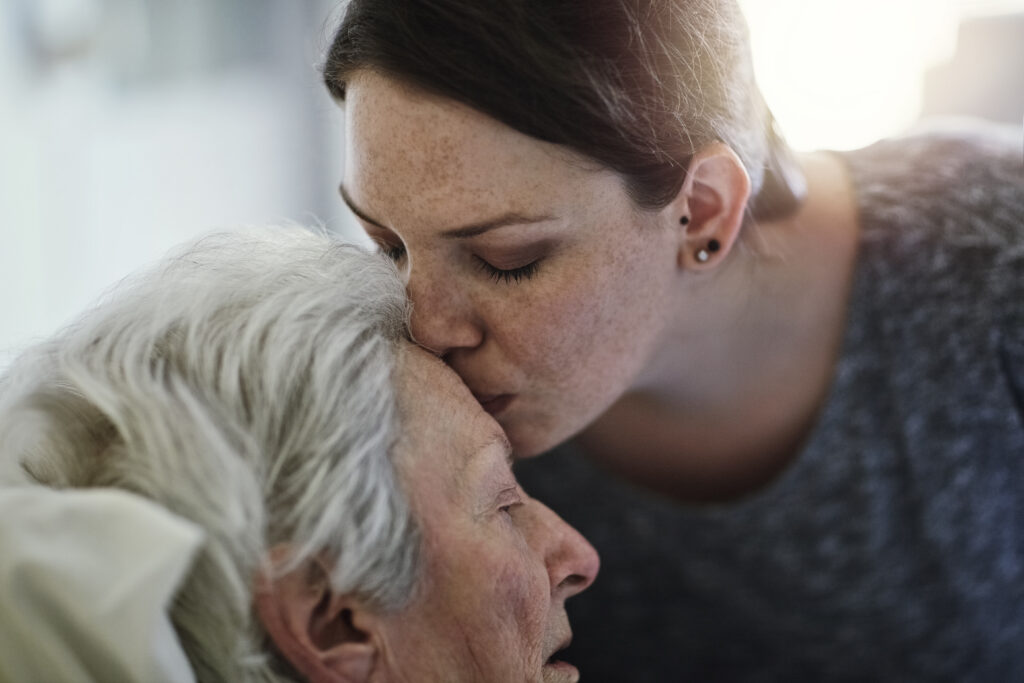There are fewer things more stressful, guilt-inducing or emotional than caring for elderly parents, or raising children. Now imagine trying to juggle both, and throw in a job and a personal life for good measure.
In today’s society where people are starting families later in life, and people are living longer, many are now simultaneously becoming parents and carers, and finding themselves part of the so-called ‘sandwich’ generation.

This parent/carer role is largely falling to women, with 10% of the women in the UK between the ages of 45 and 56 raising children whilst also being the sole or joint carer for their parents, or a spouse’s parents. Hearing these numbers it’s not surprising to learn that many of these women are finding themselves feeling overwhelmed and alone.
Every situation is different, and depending on factors such as how close you live to your ailing parents, the ages of your children, and whether or not you are also in paid employment, will all make a difference to how you balance everything. Caring for both children and the elderly requires patience, compassion and tolerance – and it’s understandable that there will be times when you will wonder where you can draw extra stores of those attributes from!
Below we have compiled a list of coping strategies that can be applied to most situations, and hopefully will address some of the more ‘challenging’ aspects of simultaneously caring for the very old and the very young.
Outsource your needs
If you are trying to do everything at once and be all things to everyone, it won’t be long before you are too exhausted to care for anyone at all. Getting help is not failing – in fact sometimes it is the most sensible thing to do.
Outsourcing some of the care of either your elderly parents or the kids doesn’t have to mean handing over complete responsibility. But you’ll find that just making some small changes will be hugely beneficial in helping you cope.
Let’s say for example your elderly mother needs help taking her medications in the morning and getting dressed, but this clashes with the school run; does your kid’s school run a breakfast club?
Being able to drop the kids at school an hour early, so they can eat with their friends and socialise before class in a safe and secure environment can offer peace of mind, and free up some time. Or maybe watching your child’s football practice after school on a wednesday clashes with the time you usually cook for your parents; could a relative or partner prepare the meal on that day? Or maybe you could employ a meals delivery service for wednesday evening instead?
Time Management When Caring for Elderly Parents
Running around like a headless chicken because you have 95,000 things to organise at once isn’t going to help anyone, so it’s very important that you manage your time and prioritise. It can help to label tasks, such as, ‘urgent’, ‘could wait until later’ etc. For example: taking an elderly parent to a hospital or GP appointment is a top priority, but mowing their lawn can wait.

A school parents’ evening or dropping the kids to a friend’s birthday party on time is a top priority, but going into town to pick them up the latest video game is not. Of course it helps if you can explain to everyone concerned that you all need to work together to distinguish the difference between ‘needs’ and ‘wants’ – easier said than done if your elderly parent is suffering from some sort of dementia, or if your kids are very little.
It may be a case of having to gently explain to your mum that reorganising her kitchen for her is less important than attending your daughter’s ballet recital, or telling your son that dropping him to meet his mates right now this second isn’t as pressing as picking up his nan’s prescription.
Have A Future Plan In Place
No one wants to expect the worst, but when it comes to caring for the elderly the situation has the potential to change very quickly; a fall, catching a sudden illness, or starting to develop signs of dementia are all examples of things that could happen and pile on extra stress. Even fit, young, and healthy people are not immune – what would you do if a child suddenly became ill, or you yourself?
Having a plan in place will make it much easier to cope should something like this happen. Is there someone within the family, or an organisation, you can call upon to provide some respite care to your elderly parents should you suddenly be unable to? Is there someone you can call upon to watch the kids if your parent is suddenly admitted to hospital – or worse? Not pleasant things to think about, but these are the practical realities of being a member of the ‘sandwich generation’. And while we are at it….
Don’t Be Afraid To Ask For Help
There are many reasons you might not want to reach out to others when it comes to helping with the kids and your elderly parents. Pride, embarrassment, not wanting to be a burden….maybe even feelings of guilt. However, if you buckle under the strain then everyone suffers.

It is much better to reach out when you can feel it’s becoming too much, and you’ll find that more often than not people are happy to lend a helping hand. Is there a friend who would be happy to grab a few extra bits for your parents while they are shopping so that you don’t have to pop back to the supermarket when you’ve already been? Or someone to pick the kids up from their after school clubs when they get their own kids?
You’ll find that these sorts of requests are usually met with a ‘yes’ – particularly as they don’t involve anyone going out of their way, but would be hugely beneficial to you in terms of time-saving and scheduling.
Talk To Your Employer
It could be that on top of everything else you have going on that you are also trying to balance a paid job as well! Most employers will make allowances for working parents, but what about if you need time off because it is your mother who is sick, rather than your child?
Speak to your HR department and do some research so that you know your rights. It could be that your employer can offer you flexi-time or a day working from home, or at the very least, be able to show more compassion and understanding if you are sometimes late or seem stressed or overwhelmed.
Try And Schedule In Some ‘Me’ Time
Easier said than done I’m sure, but it is incredibly important that you put aside some time where you only have to think about yourself – even if it’s just for an hour a week. Choose a day when there aren’t any after school commitments or doctors appointments scheduled and plan for it in advance.

Arrange for the kids’ dad to take them out for something to eat so that you don’t have to cook and can have the house to yourself and enjoy a long bath; or hire a babysitter and enjoy a date night. You can make sure you have your phone to hand for emergencies, but it is important for your own mental health to be able to take even a small amount of time to step back and put your own needs first.
It’s Ok To Moan About Your Elderly Parents
On occasion we all need to vent. It’s perfectly normal and healthy to have days where you feel you need to complain. Afterall, the kids have been a nightmare this week and the washing machine’s broken, and now your dad wants you to come round and explain online shopping for the 96,000th time…
Sharing your frustration with a partner or friend can be a cathartic way of letting it all out, thinking together of ways to solve the problem, and maybe even laughing about the situation, before taking a deep breath and starting again.
Accept The Guilt
No one ever really feels that they are a good enough parent 100% of the time, and those feelings are magnified if you are also splitting your time and attention with your elderly parents. But guilt is a draining and counterproductive emotion and so it is important to recognise that and talk about it with someone impartial to help your gain perspective.

Always remember that if the time comes that you have to seek the help of a professional care facility or organisation in order to make sure that everyone’s needs are met, it doesn’t mean that you have failed your parents. Accepting help when it comes to caring for elderly parents is a sign of strength, not weakness, and if conditions such as dementia or Alzheimer’s start to present themselves it can be a necessity.
Be sure to remind yourself often of all the good that you do and what you achieve on a day-to-day basis. You may have to adjust your expectations of yourself to be more realistic – you are only human after all, but above all, be kind to yourself too and remember you are not alone.
Contact Details
For further information on how we can help with homecare for your elderly parents please contact us using the free click to call button, or send an email through the form on our Contact Us page.

